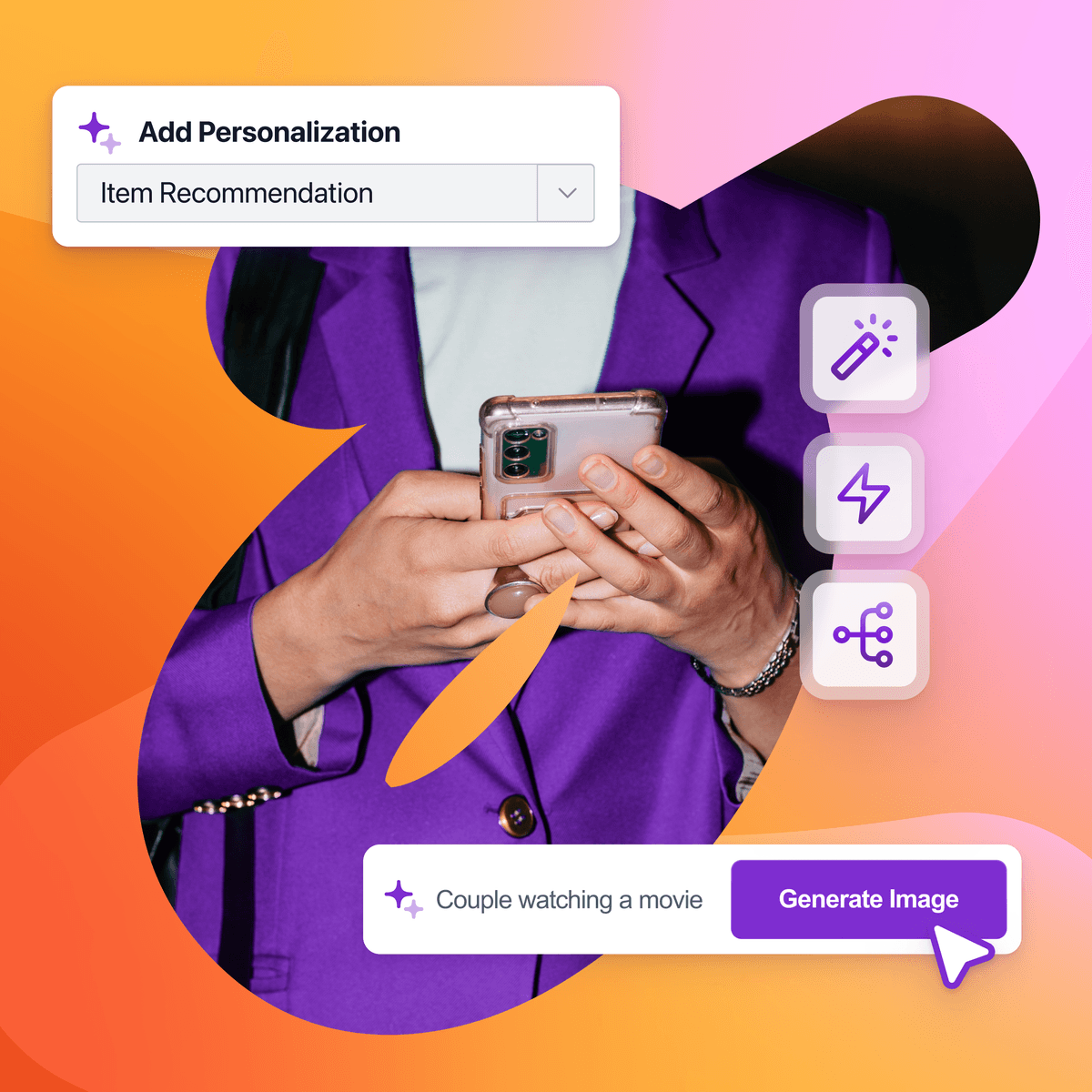Three Steps to Faster Value with Artificial Intelligence and Machine Learning
Published on June 05, 2024/Last edited on June 05, 2024/5 min read


Team Braze
Artificial intelligence (AI) is such an ever-present topic in the marketing world today that, at times, it can feel almost like a buzzword. But all the hype aside, it's clear that companies are bullish on AI and its potential to reshape the customer engagement landscape: In fact, 73% of businesses identify the tool as crucial to their future success.
With the average US smartphone user contending with 46 push notifications each day and brands sending an estimated 361 billion emails per day, AI is shaping up to be a key tool for marketers looking for ways to cut through the noise and make a lasting impact through creating meaningful content, personalizing experiences at scale, and optimizing for the best outcomes.
Let’s look at three steps companies can take to harness AI's full potential, enhancing efficiency and driving customer engagement.
Step 1: Creation with generative AI
42% of marketers cited too much time spent on business-as-usual activities as an obstacle to creativity, with 41% stating they lack the technology to execute their most creative and impactful ideas.
Generative AI is a powerful potential solution to this common challenge. By employing AI, marketers can generate authentic and on-brand copy, control the tone of the messages they send, create custom images, ensure message quality, automatically develop audience segments, and generate insightful reports—all through simple text prompts.
Beyond content creation, generative AI's capacity to sift through vast data sets allows it to uncover audience segments and insights that can help inform strategic decisions.
"As a marketer, time is precious, and Braze has been invaluable in enabling our team to swiftly create personalized campaigns that drive impactful business outcomes. Its versatility helps navigate writer’s block and the Tone Control generative functionality adapts the same message into various tones and styles, ensuring authenticity and resonance across channels. This feature not only streamlines content creation but also fosters creativity, enabling me to deliver authentic customer experiences efficiently." —Gett
"With the copywriting assistant, I can find a way to talk about the same concept using different words. And, it provides inspiration to develop new approaches." —TheFork
Step 2: AI-powered personalization
Understanding customer needs can be challenging, but effective personalization can significantly reduce acquisition costs by up to 50%, increase revenues by 15%, and boost marketing ROI by 30%, according to McKinsey. Plus, effective personalization is increasingly critical for top-performing brands, with research showing that 73% of surveyed market leaders have implemented sophisticated personalization strategies. Customers expect personalization and do not have to put up with experiences that are not personalized to their needs.
AI-powered personalization extends beyond demographic targeting, or name-based personalization; it also enables precise audience segmentation, predicts future behaviors, and tailors recommendations to individual needs, putting the most relevant customer interactions at any touchpoint in a customer’s journey.
Additionally, AI tools identify customers that are the most or least likely to take high-value actions, helping businesses proactively create personalized experiences while also allocating their resources efficiently.
Here’s how 8fit successfully applied AI to their personalization strategies:
- 8fit, a fitness and nutrition app, used predictive analytics to identify and target customers most likely to subscribe to its premium services. By focusing its marketing efforts on this group, 8fit increased its conversion rates by 3.75X while avoiding expenditure on less likely prospects.
Step 3: Optimizing Engagement Strategies with AI
According to a recent Forrester survey, B2C marketers identified driving better decision-making based on customer insights as one of their top five challenges. AI excels in analyzing large amounts of data to identify the most effective strategies for achieving desired outcomes and scaling these strategies to reach a broader audience.
Marketers can refine their campaigns by having AI:
- Determine the most engaging subject lines, copy, and creative visuals.
- Analyze customer data to recommend the optimal timing and frequency of messages, ensuring maximum engagement.
- Evaluate which channels—email, SMS, social media, or others—are most effective for different types of campaigns and audience segments.
- Predict which promotions or offers are likely to resonate best with different customer segments.
See how leading brands are implementing AI to optimize their customer engagement efforts:
- Quizlet, an edTech leader, used Braze Intelligent Timing to determine the optimal times for sending streak reminders, significantly boosting user engagement with an impressive 42% conversion rate.
- The multi-brand retail holding company, Majid Al-Futtaim, reaches 5.6 million customers on their preferred channels, tailored through AI-driven insights.
- By conducting a machine learning-driven multivariate test, Pizza Hut developed highly-targeted emails with numerous variants to discover the most effective approaches. This strategy was not limited to emails but extended across channels like SMS and push notifications, resulting in a 21% increase in revenue and a 10% increase in profit versus Pizza Hut’s standard email program.
Realizing AI’s Full Potential
From generating on-brand content to deep personalization and strategic optimization, AI can empower businesses to excel in today's digital landscape. By leveraging the steps above and learning from leaders like Quizlet and Pizza Hut, companies can harness AI to meet (and exceed) modern customer expectations for personalized and differentiated experiences while creating efficient processes that enable teams to do and win more.
Want to learn more about how you can leverage AI for your customer engagement strategy? Check out BrazeAI™.
Related Tags
Be Absolutely Engaging.™
Sign up for regular updates from Braze.
Related Content
View the Blog
The new inbox reality: How iOS changes are reshaping email marketing

Aparna Prasad

Experience optimization: Turning data insights into better journeys

Team Braze

December 2025 Bonfire Marketer of the Month: Jagex’s Emma Oliver
